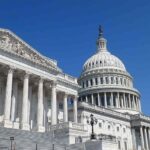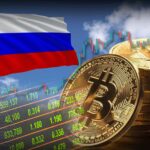As the Middle East is once again engulfed in geopolitical tension-most notably the ongoing confrontation between Iran, Israel, and the United States-observers are turning their attention to an unlikely actor in this global drama: Pakistan. Recent developments, rumors, and policy speculation suggest that Donald Trump, who is actively reshaping his foreign policy platform for the 2024-25 political cycle, may be positioning Pakistan as a strategic partner-not just militarily, but for a bold move in the global crypto economy.
Why Pakistan?
Pakistan has historically been at the crossroads of global power plays-especially during the Cold War and the War on Terror. In recent years, however, Pakistan has been increasingly vocal about blockchain adoption, digital payments, and fintech. Its large, tech-savvy population, growing freelancer economy, and regulatory ambiguity make it fertile ground for digital asset experimentation.
And now, things are becoming more formalized.
In a surprising development that caught attention in both Islamabad and Washington, a U.S.-based crypto company, World Liberty Financial (WLF), signed a Letter of Intent with the Pakistan Crypto Council (PCC). The agreement grants WLF the lead role in integrating blockchain systems into Pakistan’s financial infrastructure-with a roadmap that includes asset tokenization, stablecoin frameworks, and DeFi pilot projects. The deal aims to position Pakistan as “the crypto capital of South Asia.”
What made the move especially significant was the ownership behind WLF: Eric Trump, Donald Trump Jr., and Jared Kushner collectively hold a 60% stake in the firm. The delegation to Pakistan was led by Zachary Witkoff, whose father, Steve Witkoff, is not only a longtime Trump associate but also currently serving as the U.S. Special Envoy to the Middle East.
This convergence of crypto, politics, and foreign relations has ignited speculation that the Trump network may be laying down strategic digital infrastructure in Pakistan ahead of larger geopolitical plays.
The Middle East Conflict: Distraction or Opportunity?
Amid escalations in the Middle East between Iran and Israel, with the U.S. firmly backing Israel, Pakistan finds itself in a diplomatic bind. It has historically supported the Palestinian cause while maintaining cautious ties with Iran. Yet, Pakistan also relies heavily on U.S. aid and defense support, especially under right-leaning U.S. administrations.
A Trump-led foreign policy could leverage this delicate position: offering economic cooperation through crypto, conditional on strategic neutrality or quiet cooperation in the Middle East.
Crypto partnerships, especially involving stablecoins or tokenized remittance systems, could provide Pakistan a financial cushion amid regional instability and international sanctions-related risks. In return, the U.S. could benefit from establishing crypto corridors away from Chinese and Russian influence.
Also Read: Top Crypto Payment Processors for Business
Speculation Mounts: Did Crypto Diplomacy Mask a Strategic Strike?
Adding intrigue to this scenario are unverified reports suggesting a far more covert and controversial alignment between Trump and Pakistan’s military establishment.
According to speculative sources in fringe defense circles:
- Donald Trump allegedly hosted a private lunch with General Asim Munir, Pakistan’s Chief of Army Staff, where he not only praised Munir’s leadership but also floated a crypto investment proposal aimed at strengthening Pakistan’s financial independence.
- Shortly after this reported meeting, the U.S. allegedly conducted a covert airstrike on an Iranian nuclear site, prompting rumors that Pakistani airspace may have been used-either knowingly or under strategic misdirection.
- Some theorists argue that the crypto business pitch may have served as a diplomatic softener, positioning Pakistan into a quiet cooperation role in the ongoing U.S.-Iran conflict.
If true, this would represent a profound case of crypto being used as geopolitical leverage, not just economic innovation.
⚠️ Disclaimer: These claims remain unverified and are currently not supported by any official statement from the U.S., Pakistani, or Iranian governments. Readers should treat this as speculative geopolitical analysis, not confirmed fact.
The Politics Behind the Crypto Play
Whether or not the deeper speculation holds truth, the real-world developments, such as WLF’s agreement with Pakistan and the Trump family’s financial stake in it, are already reshaping the landscape.
From a geopolitical perspective, the Trump-aligned crypto push into Pakistan serves several strategic purposes:
- Bypass regulatory headaches: Offshore crypto partnerships allow U.S. crypto interests to expand without SEC/FinCEN interference.
- Control emerging digital finance hubs: Rather than ceding ground to Dubai or Hong Kong, the U.S. might help shape Pakistan into a “crypto ally“ in South Asia.
- Counter China’s Belt and Road: Trump has long been critical of China’s influence in Pakistan (e.g., Gwadar Port). Crypto infrastructure could be an alternative economic route.
- Reassert dominance in the Islamic world: As U.S. credibility fluctuates in the Muslim world due to its Israel stance, economic cooperation via crypto may be used as soft power.
Also Read: Top White Label Crypto Exchange Development Companies
What to Watch Next
While there’s no official confirmation of Trump’s direct coordination with Pakistan’s military for crypto or military purposes, geopolitical analysts should keep an eye on:
- Public-private deals between U.S. crypto firms and South Asian regulators.
- Statements from Pakistan’s central bank or finance ministry around digital currency frameworks.
- Trump’s 2025 campaign speeches referencing crypto, blockchain, or financial sovereignty.
- Any unusual movement in U.S.–Iran tensions, especially involving Pakistan’s role.
- Increased regional visits by Trump-linked figures or crypto executives.
Final Thought
Whether grounded in fact or emerging from the fog of modern geopolitical speculation, the intersection of crypto, diplomacy, and regional conflict is growing more tangled than ever. With real deals like WLF’s Pakistan agreement and persistent rumors about covert military alignments, it’s becoming clear that digital assets are no longer just tools for investment-they’re becoming instruments of influence.
As the world watches the Iran–Israel–U.S. triangle unfold, Pakistan may be holding more than just a diplomatic wildcard – it might be holding a digital ace, shaped by blockchain… and shadowed by politics.














